This article is part of #MakingSportWork, a series launched by The Better India and Sports and Society Accelerator. The series celebrates India’s independence with stories of heroes who have spent years working to improve lives around them through sports. Stay tuned for inspiring tales of those who are #MakingSportWork.
Ganga and Jamana are twin sisters who come from a small village in Ratlam, Madhya Pradesh. Their journey with sports has not been an easy one. Being residents of a conservative village in Ratlam, education was never a first choice, let alone indulging in sports.
After relentless persuasion, which went on for six months, their parents allowed the twins to join the Nanhi Kali after-school tuition centre run by the Naandi Foundation, where they received daily academic support. Soon, they took this opportunity to play sports, which was a part of this programme.
They demonstrated exceptional skill in sports, and were soon participating in the foundation’s in-house sports competition — the Toofaan Games.
The story of the Toofaan Games began in 2019 when Rohini Mukherjee, the then head of Nanhi Kali operations, thought it was time to introduce the girls to sports. “There are fundamental life skills that school classrooms can’t teach you – leadership, teamwork, facing failure,” she said. And that is where sports came in.
Around 1,90,000 girls, including the twin sisters, get at least 10 years of schooling and are introduced to sports once they are enrolled in this programme.
Currently, the Toofaan Games have turned into an annual sports gathering featuring four events. In the current edition that started in August 2023, almost all of the girls under their wing are competing right from the village level all the way to the nationals organised by the trust.
When the organisation first looked to introduce sports, they faced a challenge of not having anyone on the staff who could lead a sports-focused initiative. Fortunately, they found the right candidate in Lisa Murawsky, who has been an international sports consultant, educator and coach for over 20 years.
Rohini (now the Head of Global Partnerships and Strategy) and Lisa together created the ‘Sports for Life’ programme for the foundation, which led to the birth of the these games.
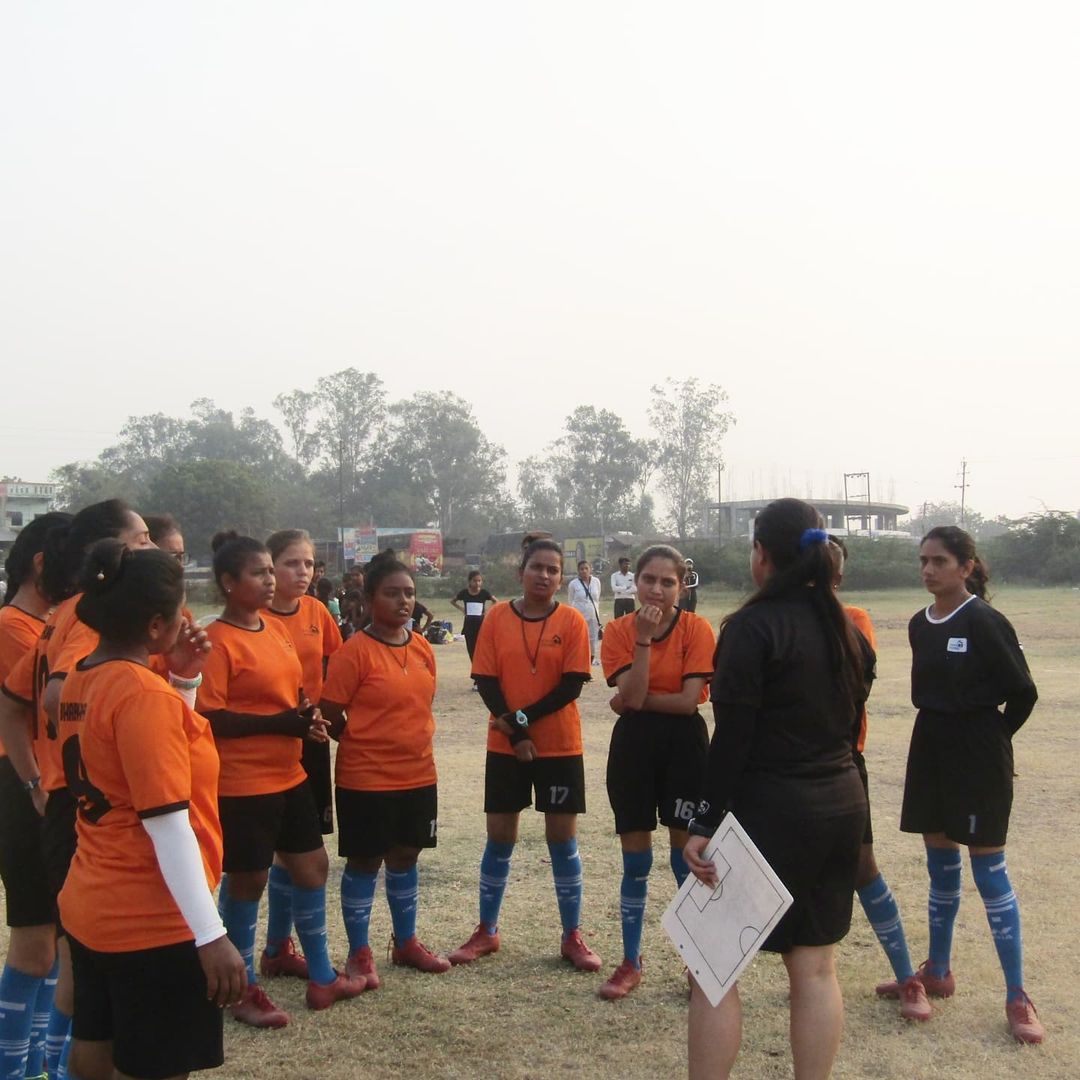
‘Toofan Games’ and the opportunities it brings to girls
Naandi Foundation, based out of Hyderabad, is an organisation working diligently since its conception in 1998 towards the eradication of poverty and upliftment of girls and women across India.
The four events of the Toofaan Games that the girls participate in are the 50m sprint, shuttle run, standing long jump, and endurance run. These four events were selected because they are simple, easy to conduct and give the girls an opportunity to demonstrate their speed, agility, lower body strength and stamina.
About 130 girls make it to the final stage of the Toofaan Games each year and for many of them, the games are the first time they set foot outside their villages.
A significant point to emphasise here is that the initiative is led by women entirely, right from coaching to the results. The existing infrastructure at Naandi — under the Nanhi Kali programme — has propelled the movement in a short span of time.
The ‘Nanhi Kali after-school tuition centres’ are managed by a young woman from the same community as the girls. When sports were introduced, these tutors were to deliver the weekly sports drills and practices.
“In the first year it was optional for tutors to become ‘sports allies’. About half of them said that they wouldn’t do it because they didn’t know what it was. By the second year, everyone wanted to do it,” Rohini says.
The tutors initially went in not knowing what to expect, but once they experienced it, everyone wanted to be a part of it.
The first event, back in 2020, vindicated their belief about the benefits of sports and physical activity, and it was a result of the organisation inculcating sports into their work and regular programming.
Initially, videos and photos of the girls doing these sports drills were sent back and forth over WhatsApp to the sports allies. To streamline this process further, Naandi decided to create its own app called SportStar to create a database.
Now, once a week, a video of a sports drill is sent out to roughly 6,000 sports allies. This allows for feedback and collaboration among all of them as everyone shares their training videos, which ensures that the app has more content for their perusal.
“Our girls cannot relate to YouTube videos of foreigners doing these drills. With this exchange of videos, we have ended up creating more resources for our girls to imbibe information from. The app is not open to the public,” says Rohini.
“If a girl is doing some exercise well, then we use that video during our drills across the country,” she adds. This is what the organisation terms ‘Sports for Life’.
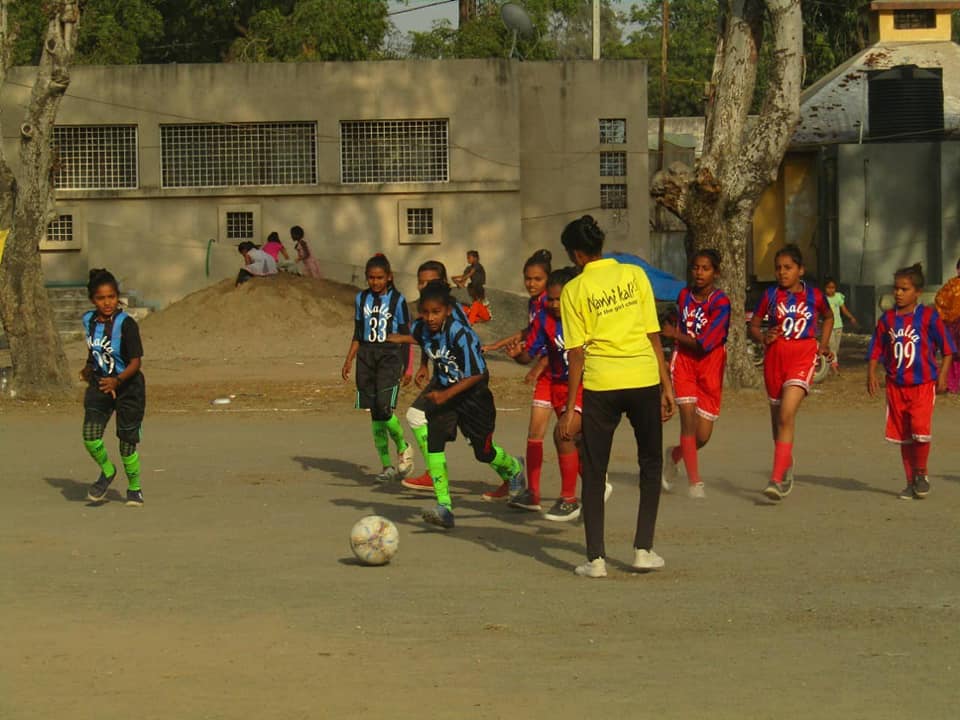
What do girls do in ‘Sports For Life’?
Over the last four years, ‘Sports for Life’ has lived up to both its name and objective to make sports a part of everyday life for girls starting from the age of six.
Under this initiative, one weekly sports class is delivered on SportStar. And, from August each year to the following January, there is a Toofaan Games sweep that goes across the country — about 6000 villages in 9 states — as widely spread as Darjeeling in the north-east to Bharuch in the west. A subset of the girls also participate in regular football coaching.
Every young girl now enjoys one sports class per week where they not only play but also learn about body movement, nutrition and menstrual health management. It is a fun programme which lets all the girls willingly participate in it.
Inculcating sportsmanship and inclusivity while playing is another important principle that these girls are taught. “Every girl learns to include everyone else, it doesn’t matter if they are good or bad at the sport,” Rohini says.
While the academics programme is given in nine languages, the SportStar app uses photos and minimal English text. Limiting it to English was a deliberate decision and has had the additional benefit of helping the sports allies pick up and improve their English, which appears to have worked.
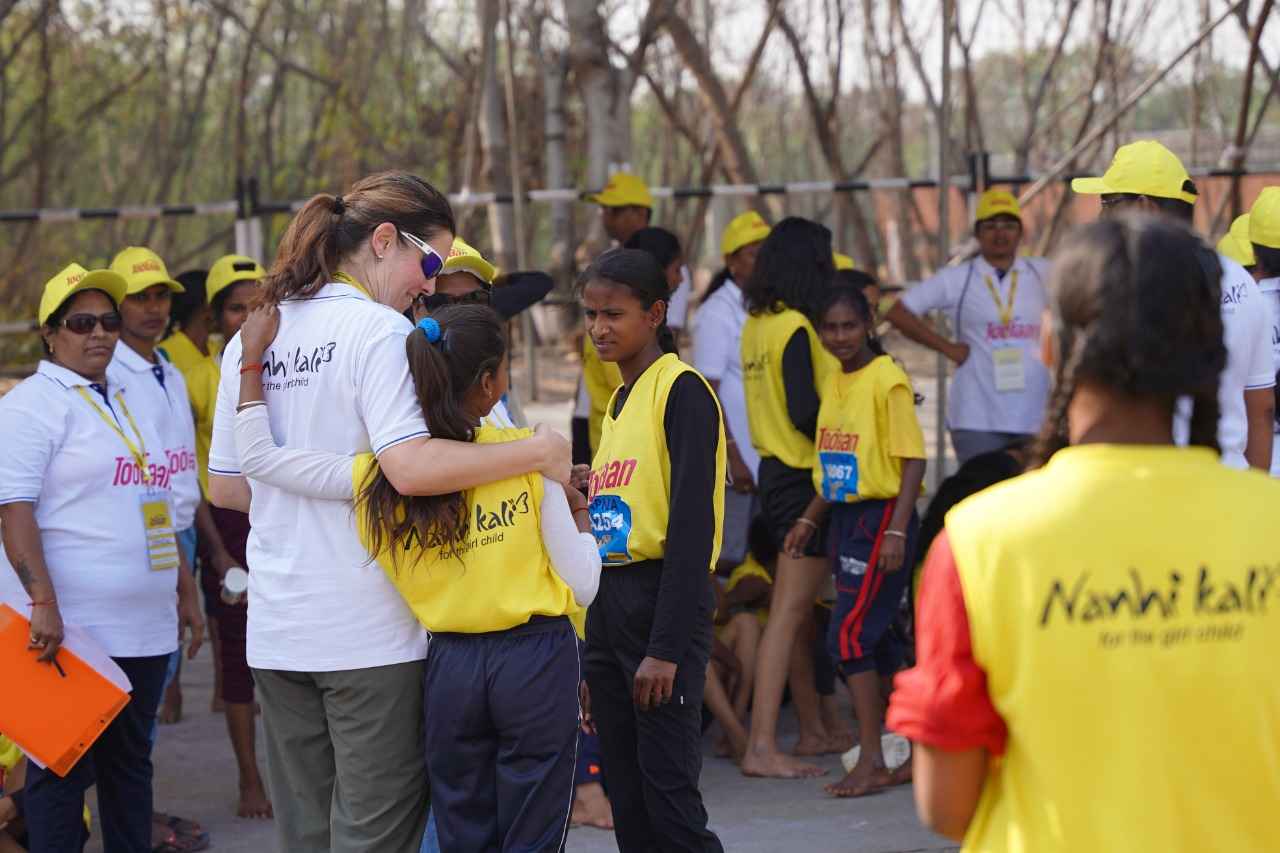
How was it received at the grassroots level
Vishakha Bhale Vyas is one of the 475 sports allies who work in the Bharuch district of Gujarat. This district has around 12,500 girls aged between eight and 14 years.
Responsible for mobilising and supporting the field teams in the district, she also pays attention to the tournaments announced by the local and district-level sports associations so that the girls there can participate in those events.
According to her, there is such a passion for sports that in the district they have branched out into football as well from other track and field sports and now have about 20 teams of girls.
“No one thought that in this Jambusar block, which is very backward, there would be so many girls’ football teams,” she says. “In fact, our girls’ teams have been the only ones to participate in all the inter-district tournaments. Most other schools, even the private ones, don’t even have a football team for girls.
The success of the football teams in turn led to the announcement of a training programme for coaches. “Now we have women football coaches who have D-Level Certification in Coaching from the All-India Football Federation (AIFF),” Vyas adds.
She has also benefited personally. “As a student, I played kabaddi and kho kho – I was in my college team. But I never thought that sports would enter my life again and that it would enrich my work with the community. It has helped me improve my health. I also find it to be refreshing, it breaks any monotony that may come into my routine.
Poornima Singh, who manages the programme in the Prayagraj district in Uttar Pradesh, works with 7,856 girls, along with 271 sports allies. She discovered that the girls did not need any motivation to play sports. “They are ready 24×7 to go to the playground and play,” she says.
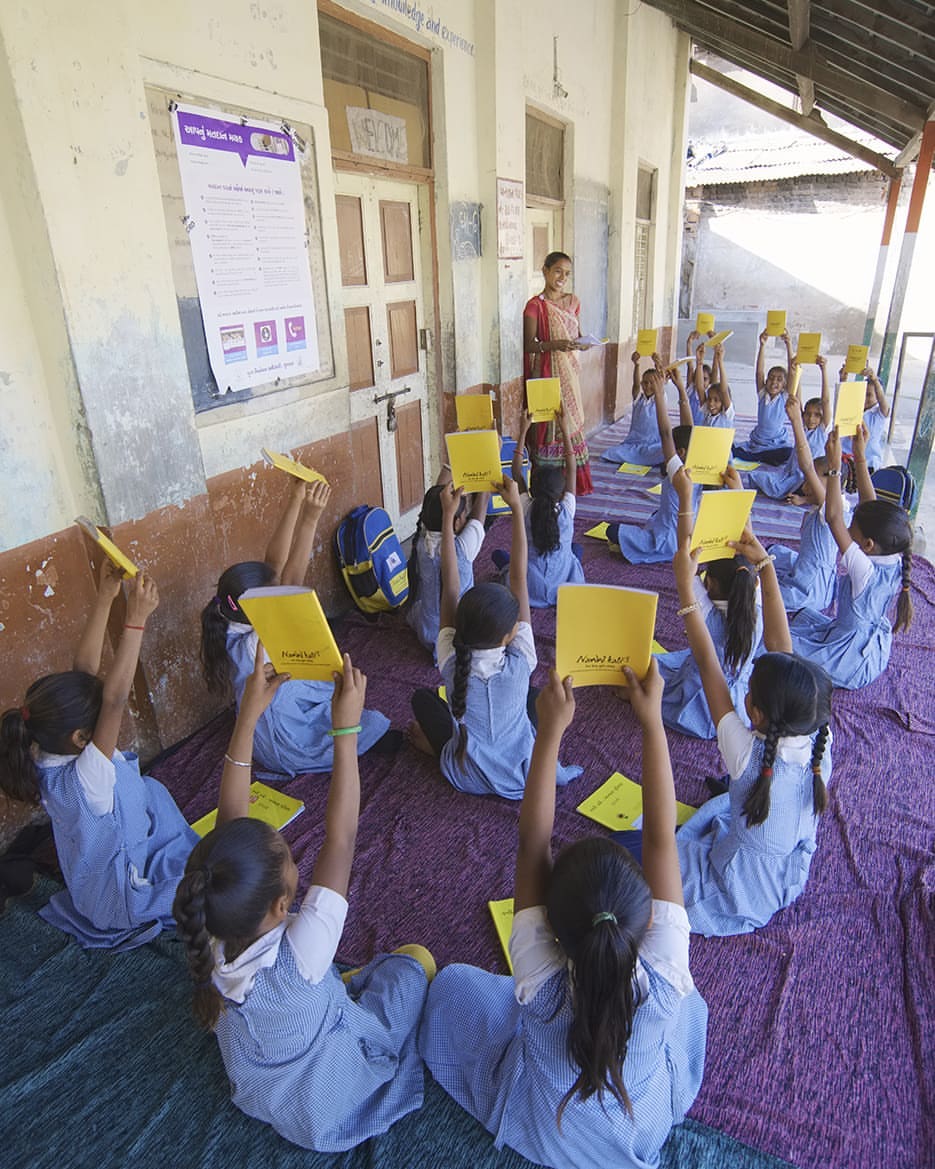
According to her, the biggest challenge has been persuading parents to let their daughters travel out of their district to participate in the Toofaan Games. “In many cases, no one in their family has ever traveled outside the district, never sat in a train, never stayed in a hotel. For them to imagine their little child doing all these things is very difficult,” she says.
The sports allies have also had to get creative to conduct events for the Toofaan Games. While villages have a lot of open space, they are either used for cultivation or are uneven and covered with plants and boulders.
So, they sometimes enlist the villagers to help clear a space for the events, or they lay down tracks which have only two lanes. “There are so many ways in which they find the solutions,” Singh says.
Personally, Singh has enjoyed coaching sports so much she got her E Level Coaching Certificate from AIFF (All India Football Federation) earlier this year. “All day I work hard in the office, but in my mind, there is this excitement that I must finish all my work by 5:30 pm so that I can go to the ground and play,” she says. “Another personal benefit for me from sports is that I sleep very well.”
Difficulty finding suitable spaces to play in is something Ruchi Upadhyay, another sports ally, also experiences in Varanasi district, Uttar Pradesh. “We would love to have good spaces,” she says. “By ‘good space’ I mean level playing ground, no bumps, no pebbles, or stones or small bushes. And an ideal good space would be where we also have washrooms and drinking water.”
Despite the lack of these spaces, the Varanasi programme has 12,603 girls and 499 sports allies. Upadhyay said she feels happiest when girls from her area qualify for the finals of the Toofaan Games.
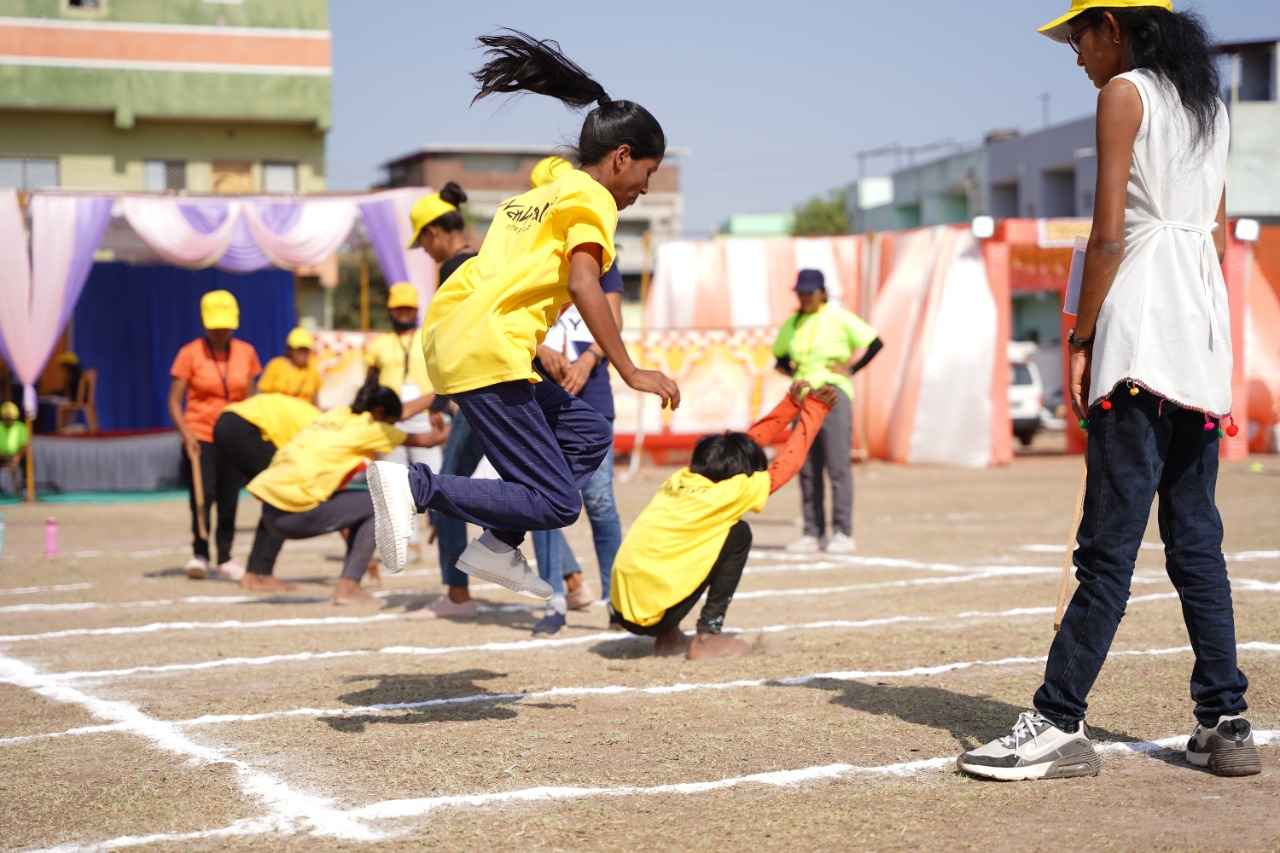
Another good thing to come out of this activity was that over the last few years, several sports allies have received certification from official sporting bodies in India to become administrators and coaches, even independent of the Toofan Games.
Ask the students if they enjoy the event and pat come the replies from them all.
“I like all the Toofaan Games events,” one participant says. “But I like football more. I want to play more and I also want to be good in my studies.”
“My favourite is sprint and shuttle run,” says another participant. “I have learnt that I should keep sipping water and now I go for a run every morning.”
The overall objective of the programme will always remain ‘sports for all’, rather than promoting excellence in sports. “There is bound to be talent that we spot,” Mukherjee said. “And having spotted it, we will do what is required. But that is not our main objective. We want girls and women to play sports until their last living day.”
This article was written by the Naandi Foundation. All photos provided by them.
Edited by Padmashree Pande.
No comments:
Post a Comment